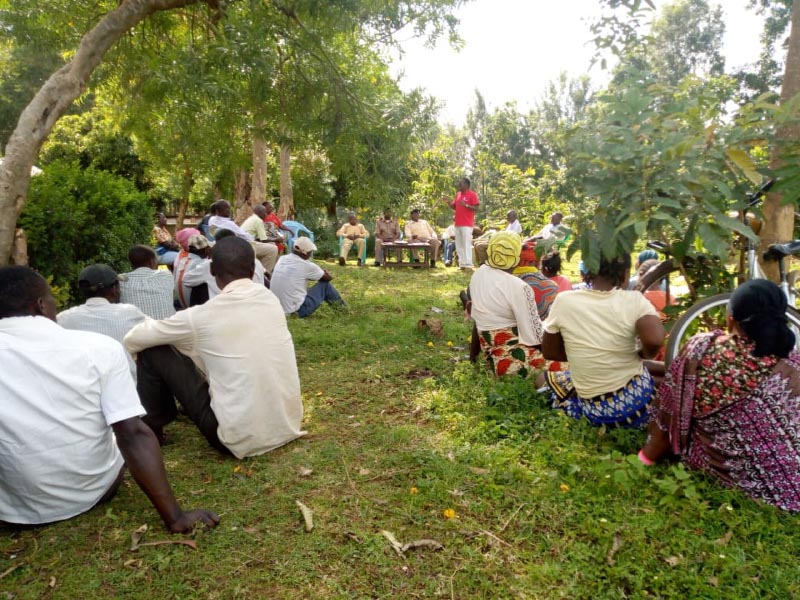
Like a tragic song that no one wants to hear but is tragically on constant replay, Kenya has in recent times witnessed a growing crisis of femicide—the intentional killing of women and girls because of their gender.
This song should neither have been written, nor sung. Yet, it echoes through our communities, serving as a painful reminder of violence and injustice women and girls endure every day.
In 2023, Kenya recorded at least 150 femicide cases, according to data collected by the Femicide Count Kenya. These alarming statistics represents only the cases reported in the media; the actual number is probably much higher.
The Africa Data Hub, which pulls data from local media reports, also reveals significant patterns in intimate partner and stranger killings. While many femicide cases are linked to intimate partner violence—where domestic disputes, control, or jealousy result in fatal outcomes—others involve violence perpetrated by strangers or non-partners, reflecting the broader issue of gender-based violence.
The horrific killings of young women alongside the shocking discovery of the hacked bodies of eight women in a quarry in the Kware area of Embakasi, Nairobi, as well as the recent gruesome tragic death of Kenyan-Ugandan Olympic athlete Rebecca Cheptegei—who was set on fire by her partner—underscore an alarming trend of gender-based violence that requires urgent attention and intervention.
LVCT Health is deeply concerned about and strongly condemns these brutal manifestations of violence against women and girls and remains committed to actively addressing and preventing such incidents.
The time to act is now!
Jane Thiomi, Associate Director of Gender-Based Violence (GBV) at LVCT Health, emphasizes that such cases should never be normalised. She calls on the government and all stakeholders involved in addressing GBV to take critical steps to protect women and girls.
Since 2005, LVCT Health has spearheaded several initiatives aimed at preventing and responding to gender-based violence and violence against children. Our comprehensive approach goes beyond providing support to survivors, as we are also deeply involved in transforming social norms, and empowering communities to address the root causes of GBV and shaping policies on GBV prevention and response. Through our GBV prevention and response program, we aim to create sustainable change by addressing the systemic issues that perpetuate violence. These efforts have resulted in over 214,510 survivors of gender-based violence receiving post-violence care services. Additionally, more than 10,000 healthcare staff have been trained to provide psycho-social support to survivors, alongside the development of over 20 policies, guidelines, and curricula.
In collaboration with multisectoral actors such as the Department of Children Services, the Police, the Judiciary, the Ministry of Education, and the Ministry of Health, LVCT Health plays a pivotal role in advancing these milestones. These partnerships enable a coordinated approach that strengthens support systems for survivors, aligns sector-wide efforts, and ensures a comprehensive response to violence prevention and intervention. By leveraging the expertise and resources of each sector, we can create safer communities and foster meaningful, sustainable change.
However, despite the progress in legal, health, and community response, cases of abuse remain prevalent.
Gender based violence continues to be a significant and prevalent issue within the broader context of domestic violence.
Many survivors still face barriers such as stigma, limited access to resources, and cases still go unreported. Survivors face numerous barriers to accessing justice and support. Although the frameworks are in place, enforcement gaps and societal attitudes often hinder progress, leaving many cases of IPV unresolved. The persistence of such abuse highlights the need for renewed and intensified efforts to address gender-based violence comprehensively and effectively.
The time to act is now. Addressing femicide and all forms of gender-based violence demands urgent, coordinated response by every and all sector of society—government, civil society, religious institutions, the private sector, and communities at large. A unified response is essential to create lasting change, and it will involve taking critical steps to ensure swift and effective interventions.
- Strengthen legal frameworks and law enforcement: The government must enhance the enforcement of existing laws related to femicide and gender-based violence, ensuring swift justice for victims. Law enforcement agencies should receive ongoing, adequate training and resources to handle such cases with sensitivity, urgency and professionalism. It is imperative that law enforcement agencies take proactive steps to effectively and swiftly investigate all alleged incidents of violence against women and girls, while steadfastly upholding the rights, needs, and safety of survivors. Justice must be swift, decisive, and uncompromising, as any delay robs victims of their rightful justice and undermines its very purpose. perpetuating the legal maxim that “justice delayed is justice denied.”
- Community sensitisation and cultural norm change: Now more than ever, it is essential we challenge the harmful norms and practices that perpetuate gender-based violence against women and girls. Stakeholders must unite to intensify community-led awareness campaigns aimed at educating men, women, and young people about the importance of equality, respect, and non-violence.
- Establishment of a Femicide Watch Body: For years, Kenyans have relied on external organisations, particularly media reports, for information about femicide-related cases. When these cases go unreported, they often remain unnoticed. The Government of Kenya must act swiftly to establish an independent agency dedicated to collecting data, monitoring femicide incidents, and recommending preventive measures to address all cases related to femicide. Perpetrators of such crimes must receive heavier sentences to ensure that justice is served for survivors of femicide.
- Economic empowerment of women and girls: Providing women and girls with economic opportunities and resources can significantly reduce their vulnerability to violence. Programs focused on financial literacy, entrepreneurship, and employment must be expanded to empower them toward financial independence. Moreover, it is essential to ensure that survivors of this extreme form of gender-based violence receive comprehensive psychosocial support to address the increasing demand for assistance stemming from the rise in femicide.
- Invest in Research: With the rising number of reported femicide incidents in Kenya, there is an urgent need for comprehensive research and data collection. This research will provide a deeper understanding of the issue, its scope, and will help tailor effective interventions accordingly.
Conclusion
As a national and global partner in ending gender-based violence and violence against children, LVCT Health remains steadfast in advocating for the rights and safety of women and girls in Kenya and beyond. We call on all stakeholders to unite in a coordinated and sustained effort to tackle this epidemic.
Together, we can create a world where women and girls live free from fear and violence, and where their rights are fully respected and protected.
The time to act is today—for a safer and more just tomorrow.
[1] UN Women defined femicide as an intentional killing with a gender-related motivation, femicide may be driven by stereotyped gender roles, discrimination towards women and girls, unequal power relations between women and men, or harmful social norms.
